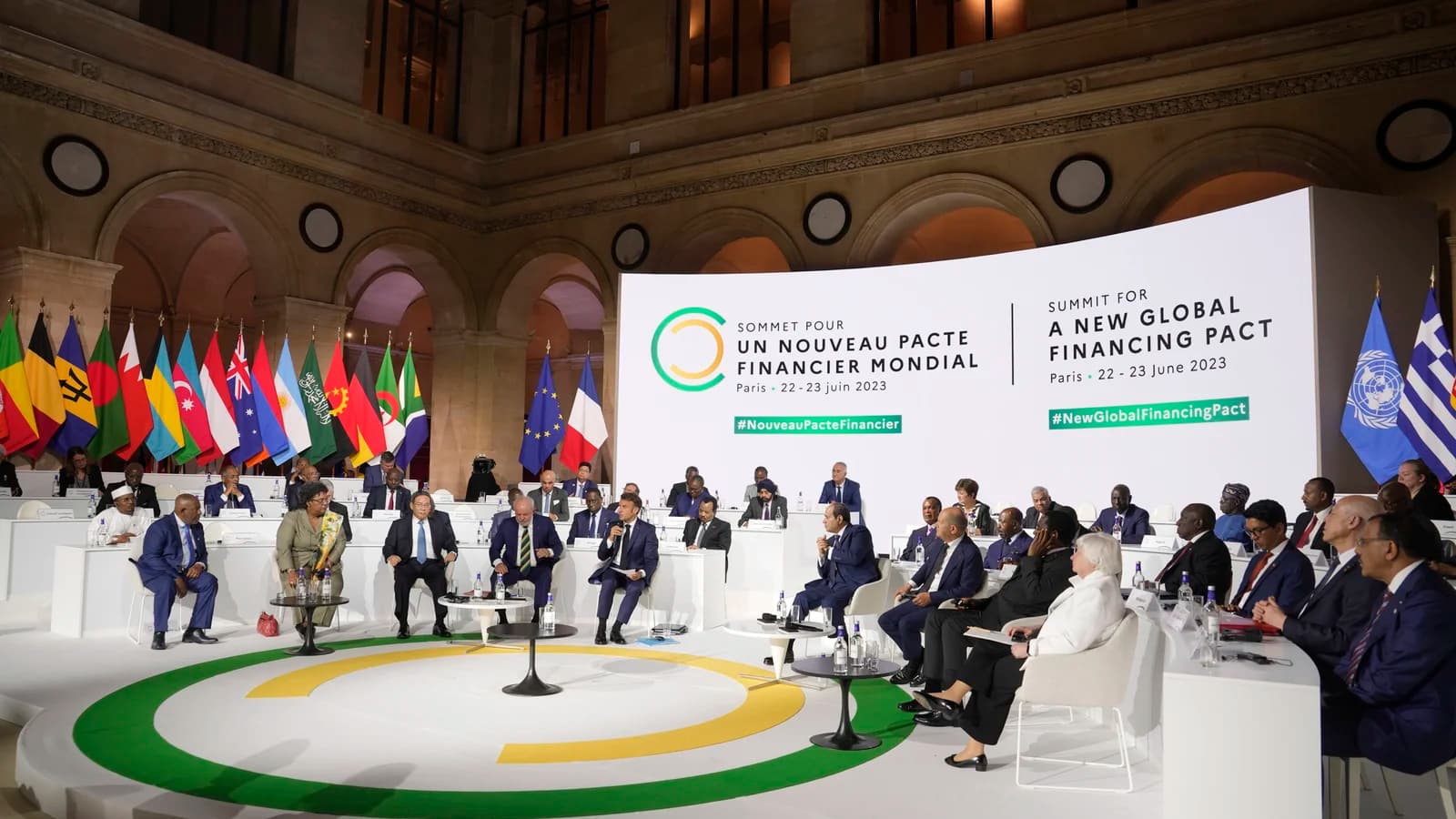We're loading the full news article for you. This includes the article content, images, author information, and related articles.
President Ruto, who witnessed the signing, said the deal will channel renewable energy into industries and create jobs, with Nairobi set to benefit as a key hub for the projects.

Addis Ababa, Ethiopia — 2025-09-08
African governments, development banks, and private financial institutions committed KSh 12 trillion (approx. US $100 billion) to the Africa Green Industrialisation Initiative (AGII) at the Africa Climate Summit. President William Ruto witnessed the agreement, which aims to unlock Africa’s renewable energy resources for climate-smart industries, value chain modernization, and job creation.
What happened now: Under the AGII framework—rooted in COP28 and the 2023 Nairobi Declaration—financial commitments were made by Afreximbank, Africa50, AfDB, Africa Finance Corporation, KCB, Equity Bank, Stanbic Kenya, Ecobank, and the AfCFTA Secretariat.
Why it matters: This forms a practical finance mechanism to enable green industrial economies across Africa.
Status: Executed at the summit; implementation and coordination will follow.
AGII advances positions Africa from policy ambitions to tangible industrial investments. Initially launched at COP28, it mirrors the Nairobi Declaration mandate for green industrialisation.
Kenya will host both AGII and APRA (Accelerated Partnership for Renewables in Africa) secretariats, leveraging its existing renewable assets and Vision 2030 industrial goals.
Mandates: AGII aligns with continental climate agenda set under the Africa Climate Summit and AU mechanisms.
Roles: AGII secretariat will coordinate implementation; AfCFTA policies will enable intra-African trade in green goods; financial institutions mobilise capital.
Next steps: Establish secretariats in Nairobi, design project pipelines, and initiate flagship infrastructure projects like energy transmission networks.
President William Ruto: Called the agreement a shift “from conversation to collaboration,” fusing finance, energy systems, and trade corridors into inclusive green value chains.
KCB CEO Paul Russo: Emphasised the bank’s commitment to accelerating renewable energy-based industrialisation.
Equity Bank’s James Mwangi: Pledged US $1 billion from the recovery and resilience fund toward AGII.
AfCFTA Secretary-General Wamkele Mene: Highlighted AGII as Africa self-financing its transformation, inviting global capital into an African-owned initiative.
|
Detail |
Data |
|---|---|
|
Financial Commitments |
Approx. KSh 12 trillion (~US $100 billion) |
|
Key Institutions |
AfDB, Afreximbank, AFC, Africa50, KCB, Equity, Stanbic, Ecobank, AfCFTA |
|
Kenya’s Role |
Host country for AGII and APRA secretariats |
|
Flagship Project |
$313 million renewable energy transmission line in Kenya |
|
Framework Linkages |
AGII (COP28), Nairobi Declaration, APRA goals |
|
|
Governance: Coordinating multilateral funds across institutions and borders risks delays and incoherence.
Infrastructure Needs: Implementation relies on robust project preparation frameworks and private-public coordination.
Inclusivity: Ensuring projects benefit local communities and industries, not just capital centers.
Project allocation timelines and transparent funding channels.
Accountability and governance models for secretariats.
Measurable targets for job creation, value addition, and climate impact.
2023: AGII introduced at COP28 and affirmed in Nairobi Declaration.
2025-09-08: AGII agreement signed at Africa Climate Summit in Addis Ababa.
Next: Operationalise secretariats, mobilise project funding, and initiate country-level rollouts.
Nairobi’s setup of AGII and APRA hubs and staffing.
Launch of the Kenya transmission project and others across the continent.
Updates on trade-integrated green manufacturing and revenue growth in green sectors.
Keep the conversation in one place—threads here stay linked to the story and in the forums.
Other hot threads
E-sports and Gaming Community in Kenya
Active 8 months ago
The Role of Technology in Modern Agriculture (AgriTech)
Active 8 months ago
Popular Recreational Activities Across Counties
Active 8 months ago
Investing in Youth Sports Development Programs
Active 8 months ago
Key figures and persons of interest featured in this article